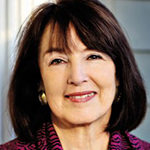 By Nancy Gertner | The Boston Globe | November 4, 2015
By Nancy Gertner | The Boston Globe | November 4, 2015
Over a 17-year judicial career, I sent hundreds of defendants to jail — and about 80 percent of them received a sentence that was disproportionate, unfair, and discriminatory. Mass incarceration was not an abstraction to me. Sadly, I was part of it.
Last weekend’s release of 6,000 prisoners from federal prison is an encouraging start to reform, but it’s only a start.
I was a judge during the most punitive period of US history — the ’90s — when we imprisoned more than any other country, even the most autocratic. I did what I could to mitigate the impact of the laws I had to apply. There were 10-, 15-, and 20-year mandatory sentences for drugs, which made no sense under any rational social policy. There were mandatory-sentencing guidelines, which often led to absurd results. When I made a small downward adjustment, explaining what I did in a written opinion, I risked reversal by an appellate court that saw only sentencing calculations, not people. Continue reading »



